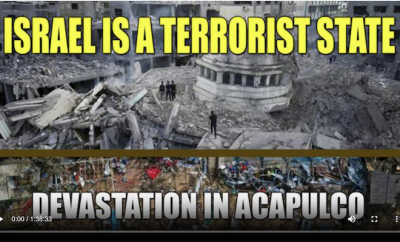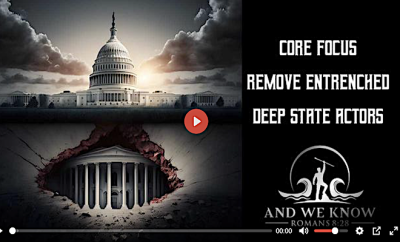 Russian Insider
Russian Insider
Featured
Moscow’s Victory Day Parade: A New World Order on Full Display
After watching Moscow’s 70th anniversary Victory Day celebrations, it is clear that a very different new World Order is emerging from the rubble of the post-Cold War period.
by Gilbert Doctorow, Russian Insider.com:
One of the benefits of the live and continuous broadcasting of the 70th Anniversary Victory Day Celebrations in Moscow via Vesti 24 and Pervy Kanal/RT was that we would-be commentators seated at home in Brussels, New York or wherever could follow the events without intermediation of professional reporters advising on what we should make of it all, without cuts and selective editing from central studios. Given the wealth of material for those of us with Kremlinology backgrounds from a day that began at 10.00 am Moscow time and continued well into the night, our cup runneth over. Not only can we draw our own conclusions, but we can see with perfect clarity what was picked up by our mainstream media from a cornucopia of messages to suit their preconceived ideas. And it would be naïve to deny that the Kremlin surely intended to present a variety of images of Russia, even mutually contradictory images, to draw the greatest possible attention to itself.
The complexity also arose from the two very different audiences being addressed: Russians and the world at large. For the Russian population, this was a day of bread and circus. To put it in Vladimir Putin’s language, it was the biggest, most lavish block party since the opening day ceremony of the Sochi Olympics. For the world at large, it was a reminder of Russia’s decisive role in the defeat of Nazi Germany and also a demonstration of its growing military might now that the Bear is Back. Moreover, by the central role accorded throughout the day to Chinese President Xi Jinping, who was ever at Vladimir Putin’s side, and by the announcement of various major Russian-Chinese commercial agreements, the fruits of Russia’s pivot to the East and its new independence from the Atlantic Community were underscored for all to see.
Vladimir Putin’s short speech opening the parade was itself rich in nuances. Notwithstanding the celebratory mood, he saw fit to castigate US foreign policy for its pursuit of a unipolar world and military block mentality that denies equal security for all. This was the raisin taken from the cake by the Financial Times coverage: “Putin takes swipe at US in parade speech.” By contrast both the BBC and Euronews reports on the parade highlighted the Russian President’s bouquet in the speech to the wartime Allies who were not present at the parade – the U.K., France and the USA – expressing gratitude for their contribution to the common cause of defeating Nazism.
And then there was the United States print media reporting of Moscow’s celebrations. The New York Times led the way with zero coverage. As I write these lines on the day after, theNYT has not posted a single article on its online edition. Even The Washington Post saw fit to put up an article, to be sure, on how the West was absent from the Moscow events, a continuation of the black PR that we have seen for at least the last 18 months.
The parade itself was declared by the Kremlin to be the largest military show in history. That may place it in the Guinness Book of Records, but it tells only part of the story. For a layman, the parade was not just about who was present on the reviewing stand and who was not, which honor guard troops from which countries were present and which were not. Yes, the Western leaders were absent while BRICS and other nations we would previously call ‘nonaligned’ were present. But you had the pageant of Azerbaijan troops being followed directly by Armenian troops; this made Moscow the city where lions and lambs exercised mutual respect and restrain, at least for the day. The rollout of Russia’s latest military hardware was important for foreign military attaches in attendance and to prove the words of Russia’s leadership to its people about the vast improvements in national defense achieved in the past several years. Otherwise this part of the day did not break new ground.
What came next in the celebrations was entirely different and marks the age of Putin. I have in mind the so-called “Regiment of Immortals,” the march of perhaps 500,000 ordinary Russians through Red Square, each carrying photographs of their “family heroes,” their parents, grandparents, great grandparents who fought in the Great Patriotic War and died in battle or who otherwise did not live to see this 70th anniversary celebration. This march was repeated all across Russia with reports that as many as 4 million people took part.
Successful politicians are by nature or training photogenic kissers of small babies. In joining this “regiment of immortals” and carrying a photo of his own father who fought in the war as a simple soldier, not a decorated general, Vladimir Putin took politics to the heights of statesmanship. He drove home the point that this is a day for every Russian family and not just a pompous show of military capability for the high and mighty to strut on the stage. He invited a sea of emotion to sweep the land. Here you had the bread.
A BBC reporter in Moscow shared with viewers some very relevant information to appreciate what Vladimir Putin was tapping into. She cited a recent poll of Russians asking them to name the most important day in the calendar to them. Twenty-six percent said it is their birthday. Forty-two percent said it is 9 May.
The impact of the ‘regiment of immortals’ procession was such that even the normally dry-eyed UN Secretary General Ban Ki Moon, who took part in the Moscow proceedings, commented to reporters that what he first supposed was a mass demonstration against the government was to his surprise, a vast wave of support for the Kremlin leadership. He congratulated Vladimir Putin for earning this high regard of his people. No wonder the Obama administration took such pains to keep the Allies from coming to the ceremony.
The day did not end there. In the evening, there was a gala performance staged on Red Square that combined all the talents of song, mass choreography and other entertainment forms that had first been put on display in the Sochi Olympics opening event. In Sochi, the message was that Russia has its own traditions of both popular and high culture but is open to the world and hospitable to all. Here was the circus, and as almost always in such efforts by the Russians, it was at a supremely professional level of execution, showing very great respect for the spectators, both those on the Square and the others watching it on their television as I did. And it all ended on the traditional note of a fireworks display.
During the day, press releases on the Russian-Chinese commercial deals that were being concluded ever since the arrival of President Xi Jinping in Moscow the day before gave substance to the featured position given to the Chinese leader in the constant company of Putin all day long. The most important of the announcements concerns the New Silk Road, which Beijing now will run in a Northern route passing through Russia as opposed to the expected Southern route bypassing Russia. This is a change of thinking and of politics that puts Europe on notice. Germany especially has been looking to the Silk Road as a boon to the enormous goods traffic between the world’s two largest export nations, Germany and China. Now that route, with all the opportunities for investment and participation, passes through Moscow, not Teheran.
No doubt, Richard Nixon is turning over in his grave. It took the hard work of two US administrations, George W. Bush and Barack Obama, to undo the geopolitical achievements of one of America’s greatest president-Realpolitik strategists. But now Nixon’s work is undone, and a very different new World Order is emerging from the rubble of the post-Cold War period.
Read More @ Russian Insider.com












